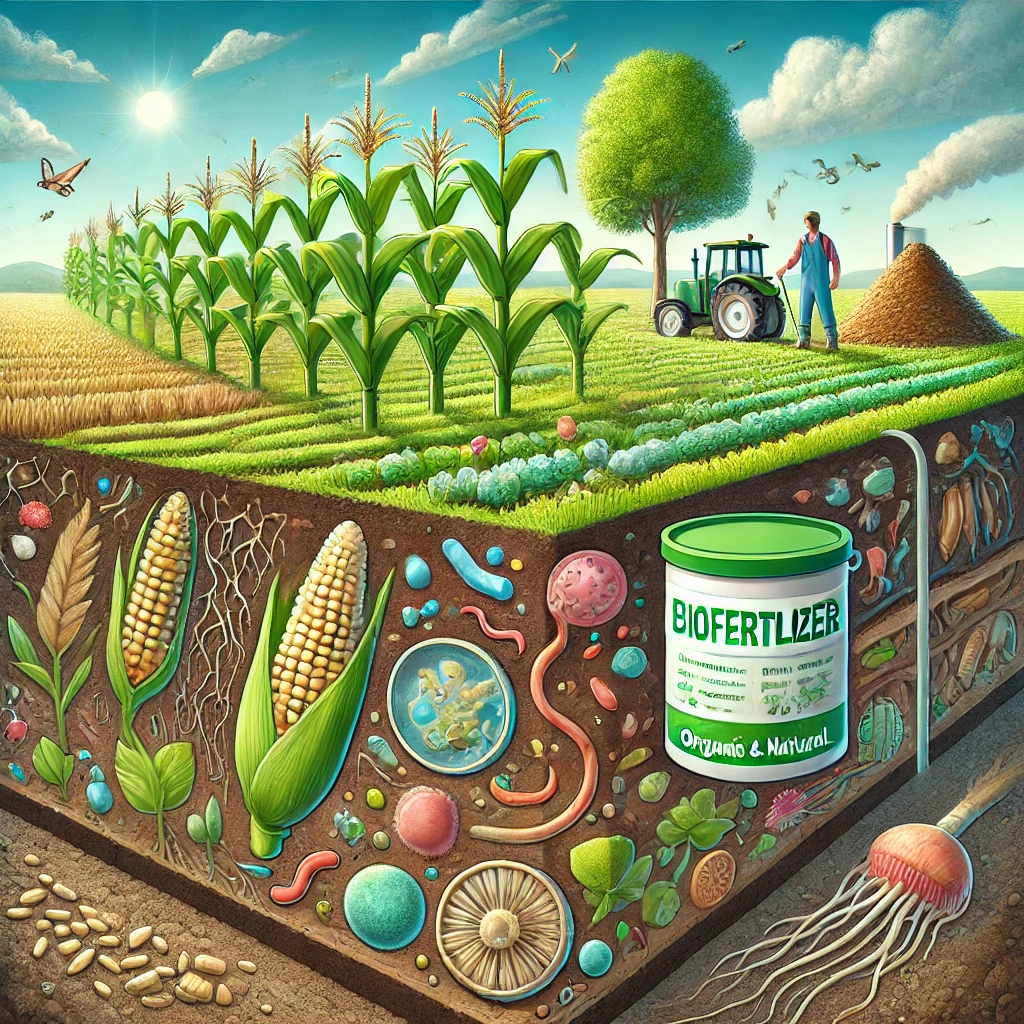The global biofertilizers market was valued at USD 2.8 billion in 2022 and is expected to grow to USD 5.2 billion by 2028, at a CAGR of 10.9% during the forecast period. This growth is driven by the expanding global farmland area, including 76 million hectares of organic farmland recorded in 2021 (FiBL). Increasing concerns over environmental health and the adverse effects of synthetic fertilizers have further boosted demand for biofertilizers. Additionally, government initiatives promoting sustainable agricultural practices are accelerating market expansion worldwide.
Top 10 Companies in the Biofertilizers Market:
- Novozymes (Denmark)
- UPL (India)
- Hansen Holding A/S (Denmark)
- Syngenta (Switzerland)
- Stanes and Company Limited (India)
- Lallemand Inc. (Canada)
- Rizobacter Argentina S.A. (Argentina)
- Vegalab SA (Switzerland)
- IPL Biologicals Limited (India)
- Kiwa Bio-Tech, product group cooperation (China)

Download PDF Brochure: https://www.marketsandmarkets.com/pdfdownloadNew.asp?id=856
Novozymes (Denmark)
Novozymes is a global leader in biological solutions and a key player in the biofertilizers market. The company develops microbial inoculants that enhance nutrient availability and uptake in plants. Novozymes’ flagship products in this segment include BioAg solutions like JumpStart®, TagTeam®, and Optimize®, often used in collaboration with partners such as Bayer. Their microbial platforms help improve crop yield, root development, and soil health, aligning with the growing demand for sustainable agriculture.
UPL (India)
UPL is a major agrochemical and agricultural solutions provider with a strong footprint in biologicals. Through its Natural Plant Protection (NPP) division, UPL offers biofertilizers that enhance soil fertility and plant nutrition. The company focuses on integrated crop management using microbial biofertilizers, mycorrhizal fungi, and nitrogen-fixing bacteria. UPL has made strategic acquisitions and partnerships to expand its biofertilizer portfolio, aiming to reduce dependency on synthetic fertilizers.
Chr. Hansen Holding A/S (Denmark)
Chr. Hansen is a bioscience company specializing in microbial solutions. In the agricultural segment, it offers microbial-based biofertilizers that promote plant growth and soil vitality. Chr. Hansen uses natural bacteria strains to create solutions that improve nutrient availability and organic farming efficiency. The company invests heavily in R&D for microbial fermentation and sustainable agriculture technologies, contributing significantly to the global biofertilizer market.
Syngenta (Switzerland)
Syngenta, traditionally known for agrochemicals and seeds, has expanded into the biologicals space through its Syngenta Biologicals division, strengthened by the acquisition of Valagro. The company is developing microbial biofertilizers and biostimulants aimed at enhancing plant nutrition, improving nutrient uptake, and reducing chemical inputs. Syngenta integrates these solutions into broader crop protection strategies to support sustainable agriculture and improve soil health.
Stanes and Company Limited (India)
Stanes is one of India’s pioneers in organic and biological agriculture. The company manufactures a range of biofertilizers, including Azospirillum, Rhizobium, Azotobacter, Phosphobacteria, and Mycorrhiza, marketed for their role in nitrogen fixation and phosphorus solubilization. T. Stanes focuses on smallholder and organic farmers, offering cost-effective and eco-friendly alternatives to synthetic fertilizers.
Lallemand Inc. (Canada)
Lallemand is a global leader in microbial fermentation, with a strong presence in agriculture through its Lallemand Plant Care division. The company develops biofertilizers that utilize beneficial microbes, such as bacteria and fungi, to improve nutrient availability and soil health. Key offerings include products like Rhizobium inoculants and mycorrhizal fungi for leguminous and cereal crops. Lallemand emphasizes scientific validation and precision agriculture techniques in its biofertilizer development.
Rizobacter Argentina S.A. (Argentina)
Rizobacter is a prominent Latin American agricultural biotech company specializing in inoculants and biofertilizers. Known for innovation in seed-applied microbial technologies, the company offers nitrogen-fixing and phosphate-solubilizing bacteria tailored for soybean, corn, and wheat. Rizobacter has expanded globally and collaborates with several partners to promote sustainable farming practices. Its leadership in the soybean inoculant market is particularly notable.
Vegalab SA (Switzerland)
Vegalab focuses on producing eco-friendly agricultural inputs, including biofertilizers and biostimulants derived from natural sources. The company offers solutions that enhance microbial activity in soil, promote nutrient uptake, and support organic farming. Its products are tailored to high-value crops such as fruits and vegetables and are compliant with organic certification standards in various global markets. Vegalab emphasizes environmental safety and low ecological impact.
Request Sample Pages: https://www.marketsandmarkets.com/requestsampleNew.asp?id=856
IPL Biologicals Limited (India)
IPL Biologicals is a leading Indian company specializing in microbial solutions for sustainable agriculture. Their biofertilizer products include nitrogen-fixing, phosphorus-solubilizing, and potassium-mobilizing microbes. IPL Biologicals serves both conventional and organic farmers and emphasizes crop-specific solutions to maximize nutrient efficiency. The company also invests in farmer education and large-scale trials to demonstrate the benefits of its biofertilizer products.
Kiwa Bio-Tech (China)
Kiwa Bio-Tech focuses on developing and commercializing eco-friendly biological fertilizers, including microbial and compound biofertilizers. The company partners with universities and research institutes in China to improve product efficacy and crop adaptability. Kiwa aims to enhance nutrient use efficiency and soil microbial balance through its products, aligning with China’s push for green agricultural practices and reduced chemical usage.
